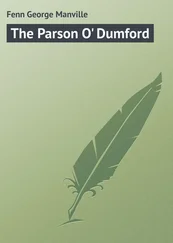George Fenn - The Sapphire Cross
Здесь есть возможность читать онлайн «George Fenn - The Sapphire Cross» — ознакомительный отрывок электронной книги совершенно бесплатно, а после прочтения отрывка купить полную версию. В некоторых случаях можно слушать аудио, скачать через торрент в формате fb2 и присутствует краткое содержание. Жанр: foreign_prose, на английском языке. Описание произведения, (предисловие) а так же отзывы посетителей доступны на портале библиотеки ЛибКат.
- Название:The Sapphire Cross
- Автор:
- Жанр:
- Год:неизвестен
- ISBN:нет данных
- Рейтинг книги:3 / 5. Голосов: 1
-
Избранное:Добавить в избранное
- Отзывы:
-
Ваша оценка:
- 60
- 1
- 2
- 3
- 4
- 5
The Sapphire Cross: краткое содержание, описание и аннотация
Предлагаем к чтению аннотацию, описание, краткое содержание или предисловие (зависит от того, что написал сам автор книги «The Sapphire Cross»). Если вы не нашли необходимую информацию о книге — напишите в комментариях, мы постараемся отыскать её.
The Sapphire Cross — читать онлайн ознакомительный отрывок
Ниже представлен текст книги, разбитый по страницам. Система сохранения места последней прочитанной страницы, позволяет с удобством читать онлайн бесплатно книгу «The Sapphire Cross», без необходимости каждый раз заново искать на чём Вы остановились. Поставьте закладку, и сможете в любой момент перейти на страницу, на которой закончили чтение.
Интервал:
Закладка:
“Well, not all,” he said, laughing. “A great many, though, for you are horribly transparent. But why?”
“Because you have been thoroughly expressing my wishes. Do not think me foolish, but I do, indeed, think it would be better that there should be no intimacy between the families.”
“Foolish!” he laughed. “Why, that would be like blaming myself. But there, I don’t think we need trouble ourselves; for I suppose they will be very grand, and take up only with the county families and grandees from London; they will not want our society. And do you know, dear, we shall have to pinch and save no end, for I have been investing heaps of money in a speculation – one, though, that is certain to pay. Iron mines, you know, that were found last year at Blankesley. Capital thing it is to be, so they tell me.”
“But was it not foolish?” said Mrs Norton. “Had we not enough, dear?”
“Well, yes,” he said, rather impatiently; “enough for ourselves, but we have the child to think of. You do not suppose he will be content to lead his fathers dreary life.”
“Dreary, Philip?”
“Well, no – not dreary. I don’t mean that; but quiet, retired existence; and besides, a little to do with this iron affair – a little occupation – will be the making of me. I’ve grown so rusty,” he said, laughing, “that I have run to iron to polish it off.”
That same night a similar conversation took place at the Castle, where, in quiet, well-chosen words, Sir Murray expressed a wish that there might be no communication held with the inmates of the Hall.
“Do you doubt me, Murray?” said Lady Gernon, rising, and standing looking down upon her husband, as he leaned back in his chair.
“Doubt you!” he said, almost angrily. “My dear Lady Gernon, what a question!”
“Then why should you ask me, now that at your wish we have returned to the Castle, to give up the love, sympathy, and companionship of my cousin? Why did we not stay abroad, if such coldness is to be preserved. I ceased corresponding with her at her marriage, but with what pain and cost you only know. Do not ask more of me.”
“There – there,” he said, “what a trouble you are making of this trifle. It is my wish that the old acquaintanceship should not be renewed. No good can result from it; but, perhaps, for all parties a great deal of heartburning and pain. Be guided by me, Marion.”
“Not in this,” she said, firmly. “Murray, I never yet in anything opposed your wishes, but in this I do. It is my intention to drive over and call upon Ada to-morrow, and I ask you to accompany me. To be distant now would be like disinterring old griefs and sorrows that should before this have been forgotten. Let the past be buried in the past, and let us be, with these our nearest neighbours, upon intimate terms. You do not know Philip and Ada as I know them; and I love them both too dearly to slight them even in thought.”
“As you will,” he said, with a shrug of the shoulders.
“And besides,” she continued, “your wish is almost an insult to your wife, Murray; it is cruel in tone, cruel in wording – harsh as it is unjust – unfair.”
“Do I not say,” he exclaimed, angrily, “do as you will? I gave you my opinion as to what I thought would be best, and you differ. Very well; one of us must give way, and I have yielded. What more would you have? Do I ever play the domestic tyrant? Am I ever unreasonable?”
Lady Gernon was silent, and stood pale and motionless, looking at the table upon which she rested her hand. She was still very beautiful; but there was a sharpness about her features that told of suffering, and the workings of a troubled heart. It was evident that she wished to speak, but the words would not come, and at last, fearing to display her agitation, she glided back to her seat.
But she had gained her end: there was to be reconciliation, and a friendly feeling preserved between the two families. And why not? she asked herself. Were they to be always enemies on account of the past?
Sinking thoughtfully back in her chair, she rested her forehead upon her hand, dreaming over the incidents of the past few years, and even while feeling a dread of the impending meeting, she felt a longing desire to look once more upon her old lover – upon the man who, upon her wedding-day, had seemed, as it were, to cast a blight upon her future life, as he appeared like one rising from the dead to upbraid her with her falling away.
Lady Gernon did not see the curious way in which her husband sat and watched her, marking every change in her countenance, noting every sign. He had been startled by the earnestness with which she had combated his wishes. Her manner had been so new, her eager words so unusual; for during their married life her actions had been of the most subdued nature, and, as if resigning herself to her fate, she had been the quiet, uncomplaining wife, to whom his word had been law, while, proud of her beauty and accomplishments, he had been content.
But no words passed till, rousing herself, Lady Gernon sought to remove any strange impression her utterances might have made – sought, but in vain, for she had unwittingly sown seeds that had already begun to germinate, striking root deeply in her husband’s breast, soon to flourish for ill in a way that should defy her utmost efforts to uproot them.
Food for Suspicion
“Who?” exclaimed Mrs Norton, aghast, as her servant hurriedly made an announcement.
“Sir Murray and Lady Gernon. I saw the carriage come in at the lower gate. There they are, ma’am,” said the girl, as the grating of wheels upon the drive preceded a loud peal at the bell.
“For Heaven’s sake be calm, Philip!” exclaimed Mrs Norton, as she saw him turn ghastly pale, all save the great scar upon his face, which seemed to glow and throb.
“Not at home! We can’t see them!” he exclaimed hoarsely.
“Too late,” she said, unwittingly giving him another pang, as she quoted his despairing words of the day when he had last seen Marion. “But, Philip, love, dear husband, recollect yourself,” she whispered imploringly; and then, trying to recover her composure, she rose as Sir Murray and Lady Gernon entered the room – the former courtly and at ease, the latter to run to Ada, throw her arms round her neck, and kiss her fondly, holding her for a few moments to her throbbing breast, while, overcome by the warmth of the greeting, Mrs Norton as lovingly returned the embrace.
To her great delight, though, as she raised her eyes from her cousin, it was to see that, quite composed and courteously, Philip Norton had advanced to meet his guest, they had shaken hands, and Norton had now turned to greet Marion.
Ada’s heart palpitated, and she hardly dared watch her husband, but turned to look at Sir Murray, who was narrowly scanning every glance and act. But Lady Gernon’s greeting of her old lover was graceful, kind, and yet dignified; her every word and look was unimpeachable, and Ada Norton’s agitation gave place to a feeling of thankfulness as she saw her husband take Marion’s hand without a shade crossing his countenance, press it slightly in a frank greeting, and then place for her a chair; when, apparently himself relieved, Sir Murray engaged his wife’s cousin in conversation, his old stiff, courtly manner being more proud and polished than ever, as he talked of their long absence, the changes that had taken place, expressing, too, a hope that he should see her often at the Castle.
“Will you take me into the garden, Captain Norton?” said Lady Gernon, in a low tone. “I have something to say to you.” Then aloud: “Do you not find the weather very oppressive? I am always longing for the fresh air.”
The remark was too pointed to escape observation, for Lady Gernon was no way skilled in subterfuge, while Norton hesitated for an instant, and there was a slight change in his countenance as he rose, saying:
Читать дальшеИнтервал:
Закладка:
Похожие книги на «The Sapphire Cross»
Представляем Вашему вниманию похожие книги на «The Sapphire Cross» списком для выбора. Мы отобрали схожую по названию и смыслу литературу в надежде предоставить читателям больше вариантов отыскать новые, интересные, ещё непрочитанные произведения.
Обсуждение, отзывы о книге «The Sapphire Cross» и просто собственные мнения читателей. Оставьте ваши комментарии, напишите, что Вы думаете о произведении, его смысле или главных героях. Укажите что конкретно понравилось, а что нет, и почему Вы так считаете.












